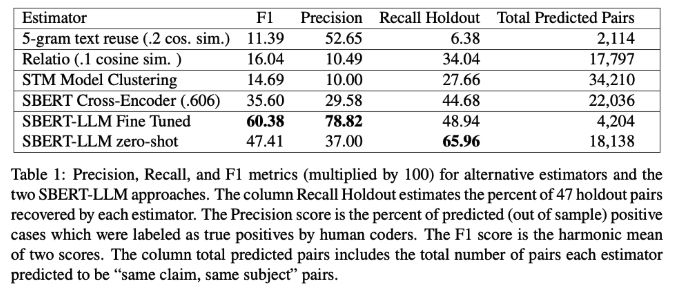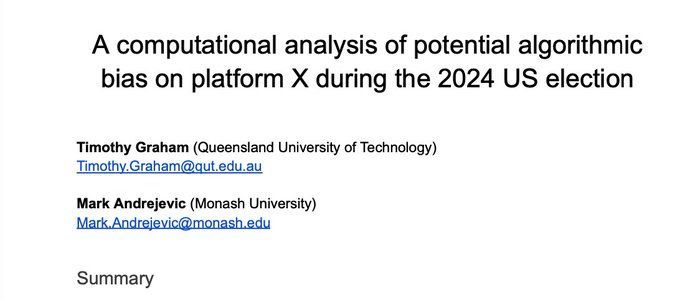
2 PM, VCC West Ballroom B
Chair: @eunjikim.bsky.social. Discussant: @mollyeroberts.bsky.social

2 PM, VCC West Ballroom B
Chair: @eunjikim.bsky.social. Discussant: @mollyeroberts.bsky.social










Musk has 204.9M followers.
Trump Jr has 12.9M followers.
Cory Booker has 4.5M followers.
Rs in this sample also *systematically* post more:https://x.com/SolomonMg/status/1858161536822358214/photo/1

Musk has 204.9M followers.
Trump Jr has 12.9M followers.
Cory Booker has 4.5M followers.
Rs in this sample also *systematically* post more:https://x.com/SolomonMg/status/1858161536822358214/photo/1



The cascading, multiplicative effects of ranking changes likely explain the effect--details below

The cascading, multiplicative effects of ranking changes likely explain the effect--details below
The few w higher racial prejudice are already voting R by a huge margin.
HT @dhopkins1776.bsky.social

The few w higher racial prejudice are already voting R by a huge margin.
HT @dhopkins1776.bsky.social

x.com/SolomonMg/st...

x.com/SolomonMg/st...

pbs.twimg.com/media/Gb4RCO...


pbs.twimg.com/media/Gb4RCO...







